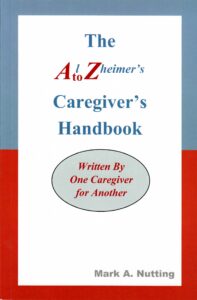The investment of educating professional healthcare providers will improve the results of the services you deliver to your clients living with dementia. The Workforce Development Workgroup researched and wrote Workforce Gaps in Dementia Education and Training in 2017, as part of the National Research Summit: Building Evidence for Services and Supports on Dementia Care, supports this.
The number of people living with dementia continue to grow despite all the research and treatment trials. We are facing an epidemic that is forcing families to make hard decisions regarding care for their loved one. In most cases, institutionalization is the last option of care desired. People living with dementia are continuing to live in their home longer with the commitment of family members combined with the utilization of home care services and adult day programs. In a person’s journey with dementia, they may ultimately reside in memory care assisted living or a nursing home.
The quality of life for a person who is living with dementia, depends upon the competency of the care team along the entire continuum of care. Everyone from the family member, home health aide, companion, nurse, homemaker, therapist, physician, activity professional, social worker, etc. will benefit from additional education. Basic knowledge should include reversible causes of dementia, dementia diseases, symptoms and stages. The understanding of best practices of care and the promotion of strategies and interventions will improve care. In order to provide true person-centered care, the expertise in dementia care requires leadership to recognize the urgency of education and training. Often times, due to high staff turn-over, cultural barriers, low rate of pay, and decreased pool of caregivers, the organization is barely skimming the surface of dementia education and training and for some, there is no mandated training.
The development of a dementia-capable workforce allows more people to age in place longer, increases the availability of supportive services, assists families in their role as caregivers, reduces caregiver stress and burden, and increases the quality of care to the person living with dementia, their families and caregivers. Care coordination that includes matching the appropriate caregiver to the person living with dementia, specific dementia training for that caregiver, and ongoing support and supervision will reduce caregiver burnout, improve overall care, and better the results of client satisfaction.
Dementia care providers will find that recruitment is easier and retention rates increase if they prioritize specific ongoing dementia training and support. A professional caregiver will feel empowered, confident, valued; and will professionally represent your organization.







